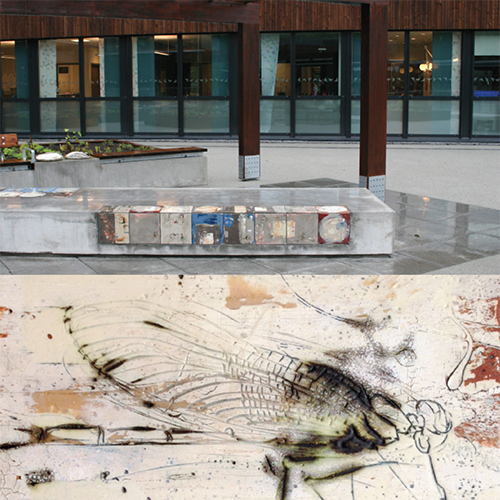Participation in hybrid sketching
DOI:
https://doi.org/10.7577/formakademisk.2676Abstract
In the age of digitalisation, the role of the sketch has taken new forms, but it still works as a mediator between people who work to create something together. There is, however, a lack of knowledge about how the sketch can be used as a strategy to increase participation and collaboration in creative processes. Participation in various types of sketching was explored through a case study with a participatory design approach in a public art project for a health centre. The study demonstrated how hybrid materialisations of a sketch have value as a communicative medium. Essential concepts emerged from collaborative learning in fieldwork that created shared understanding based on drawing experiments. The concepts contribute to a typology of hybrid sketches used as creativity skills in the expanded field of art.
Keywords: Collaborative learning, participatory design, artistic research, drawing in the expanded field, management of creative processes

Downloads
Published
How to Cite
Issue
Section
License
Authors who publish with this journal agree to the following terms:
- Authors retain copyright and grant the journal right of first publication with the work simultaneously licensed under a Creative Commons Attribution 4.0 License that allows others to share the work with an acknowledgement of the work's authorship and initial publication in this journal.
- Authors are able to enter into separate, additional contractual arrangements for the non-exclusive distribution of the journal's published version of the work (e.g., post it to an institutional repository or publish it in a book), with an acknowledgement of its initial publication in this journal.
- Authors are permitted and encouraged to post their work online (e.g., in institutional repositories or on their website) prior to and during the submission process, as it can lead to productive exchanges, as well as earlier and greater citation of published work (See The Effect of Open Access).
- The author(s) must manage their economic reproduction rights to any third party.
- The journal makes no financial or other compensation for submissions, unless a separate agreement regarding this matter has been made with the author(s).
- The journal is obliged to archive the manuscript (including metadata) in its originally published digital form for at least a suitable amount of time in which the manuscript can be accessed via a long-term archive for digital material, such as in the Norwegian universities’ institutional archives within the framework of the NORA partnership.
The material will be published OpenAccess with a Creative Commons 4.0 License which allows anyone to read, share and adapt the content, even commercially under the licence terms:
This work needs to be appropriately attributed/credited, a link must be provided to the CC-BY 4.0 licence, and changes made need to be indicated in a reasonable manner, but not in any way that suggests that the licensor endorses you or your use.



